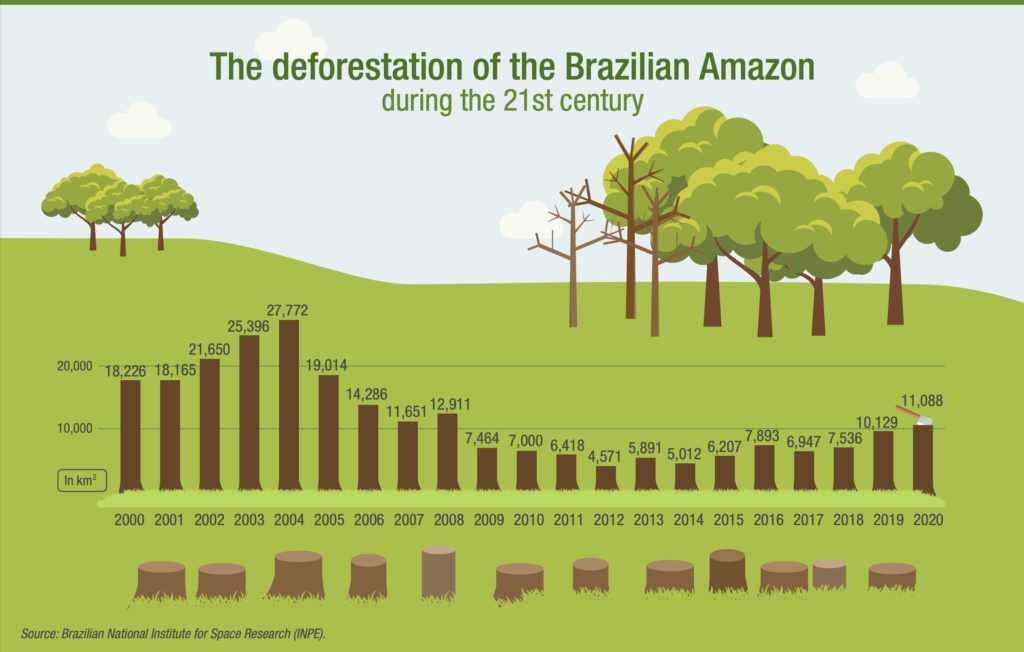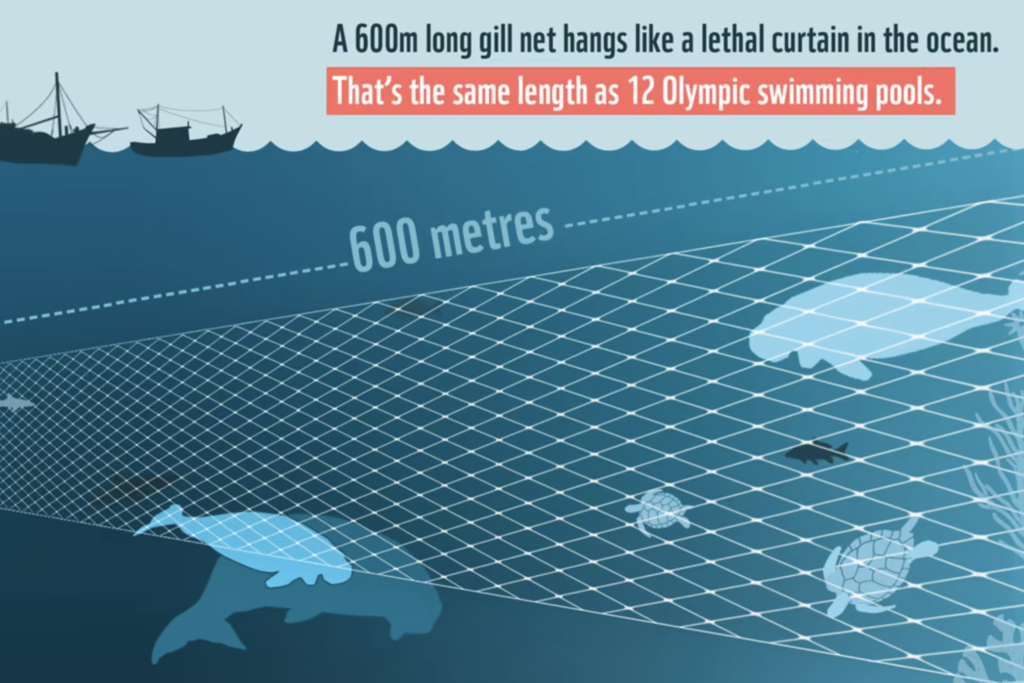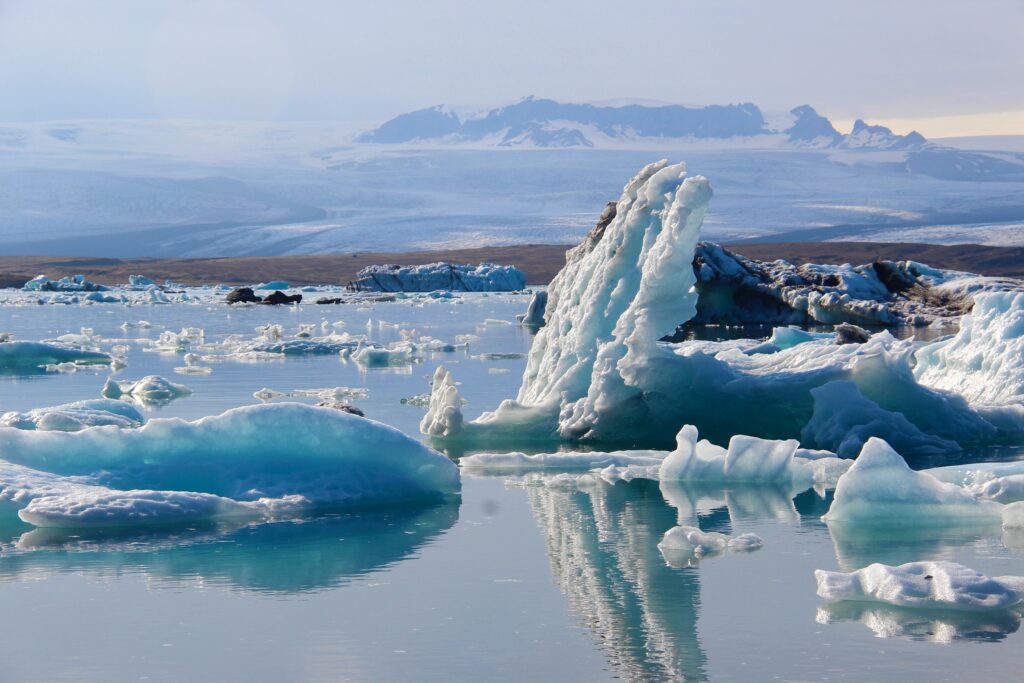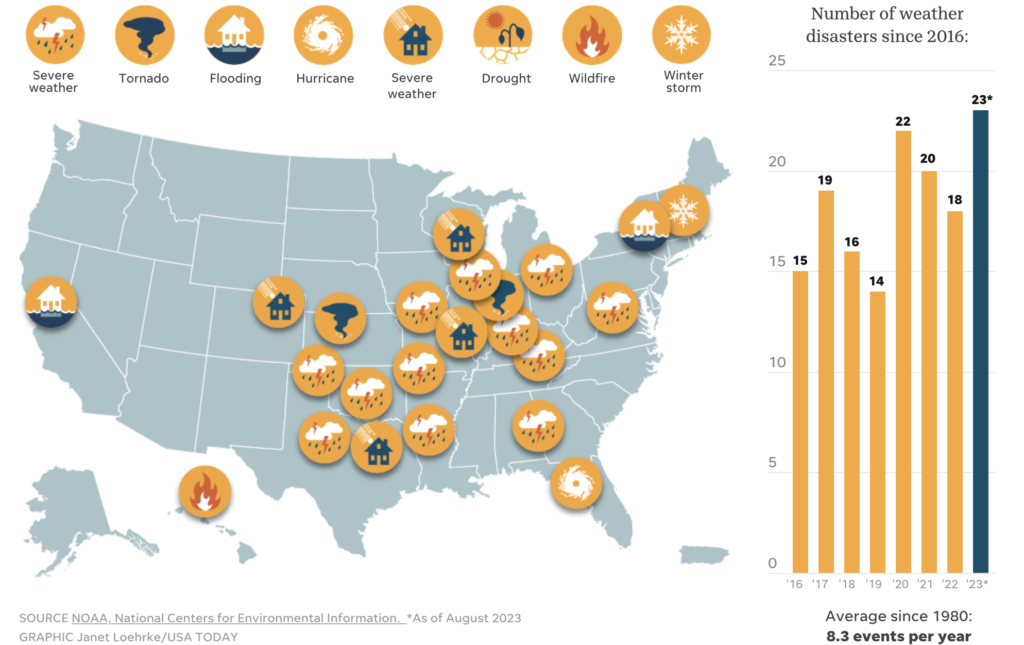Published 1 January 2024 ● Last Updated on 1 January 2024
2023 was a year like no other. There was no shortage of news announcing major technological, political and cultural events. Amongst all this information we bring you the top environmental news that made headlines in 2023. We hope you can use this roundup to make better choices for yourself and the planet in 2024.
It’s a new record for global carbon emissions and temperatures
Released in November just ahead of the COP28 climate talks in Dubai, The UN Environment Programme’s (UNEP) annual Emissions Gap report found that failing proper climate action, the world will face a warming of 2.5 to 2.9 degrees Celsius above pre-industrialization levels by the end of this century. The report also pointed out that in order to ensure that the global average temperature rise is between 2 degrees Celsius and 1.5 degrees Celsius, the predicted 2030 emissions must decrease by 28 to 42%.
Published even as the global average temperature exceeded the 2 degrees Celsius threshold for the first time on November 17, the report is a timely warning that the planet is careening toward a dangerous level of warming.
The impact of climate change became evident with the sea ice in Antarctica hitting a record low earlier in the year. At the end of June, ice covered 4.5 million square miles of ocean around the continent, which was nearly a million square miles less than the expected average, and almost half a million square miles smaller than the record low of 2022.
Despite all the warning signs and catastrophes, in one of the biggest environmental problems of 2023, the world continued on its path of using fossil fuels, with carbon emissions touching record levels according to a report from The Global Carbon Project. The report said countries are expected to emit a total 36.8 billion metric tons of CO2 from fossil fuels in 2023, a 1.1% increase from last year.
COP28 finally calls for a “transition away” from fossil fuels
The 13 day 2023 UN Climate Change Conference (COP28) kicked off in Dubai on 30th November, starting positively with the approval of the loss and damage fund that was first tabled in COP27 in Egypt last year. The fund is meant to support vulnerable communities and developing nations which are struggling to cope with the impact of climate change. Incidentally these nations have contributed the least towards the climate crisis and are facing the maximum brunt of climate disasters such as floods and droughts.
The future of fossil fuels took center stage at this year’s conference as the participating nations worked overtime to negotiate how quickly fossil fuel production should be ceased. A landmark agreement was reached with a majority consensus amongst the 200 participating countries to “transition away” from fossil fuels. Though the agreement falls short of calling out for a full phase out of fossil fuels, it does exhibit the growing global awareness about the gravity of the climate crisis.

Reprieve for biodiversity
The year witnessed its share of positive environmental news as well. In the face of existential threat to biodiversity due to climate change, some key actions to address this crisis that stood out were:
1. On 4 March 2023, 190 UN member countries approved a landmark agreement to protect areas of the ocean beyond national jurisdiction. Finalized after almost two decades of negotiations, the treaty is seen as vital to support the 30×30 pledge made by countries at the UN biodiversity conference in December 2022, to protect a third of the sea (and land) by 2030.
2. Providing much needed finance to help developing countries decarbonise and restore nature, President Joe Biden committed $500 million over five years to reduce deforestation in Brazil and another $1 billion to help developing countries cope with climate change. Making the pledge in April during a virtual meeting with the Major Economies Forum on Energy and Climate, Mr. Biden urged other wealthy nations to come out in support and do their utmost to cut greenhouse gasses and limit global warming.
3. Coming to the rescue of honeybees, Dalan Animal Health, a biotech company in Georgia, announced that they have received conditional approval from the U.S. Department of Agriculture for a vaccine that protects this endangered species from American foulbrood, an aggressive bacterium that can spread quickly from hive to hive. The chief science officer of the company said that the vaccine “could help change the way scientists approach animal health.”

4. Australia, the 2023 World Cricket Cup champions turned climate champions when the Australia Minister for the Environment and Water announced its plans to phase out gill net fishing in the waters of the Great Barrier Reef. Coming as a major win for ocean campaigners and conservationists, The Australian and Queensland governments are pledging more than $160 million towards the cause through a commitment to buy out existing gill net fishing licenses and enforce a complete ban by 2027. Gillnets, used for capturing fish like barramundi and mackerel, can extend over a kilometer in length and inadvertently entangle, injure and even kill other endangered species. The reforms also include a request to declare threatened hammerhead sharks a “no-take species” for commercial fishers fishing in Queensland, Australia, finally addressing a long-standing appeal by ocean campaigners.

The people have spoken
Highlighting the increasing role of climate litigation as a tool to fight for climate justice is the Global Climate Litigation Report: 2023 Status Review, which shows that the total number of climate change cases has more than doubled in five years. In one instance of victory for climate action, a Montana state court ruled in favour of plaintiffs who sued the state for anti-climate policies. Levering the might of climate law, Swiss people voted yes to the Climate Protection Targets, Innovation, and Strengthening Energy Security Act in June, binding the country to reach zero GHG emission by 2050. The new law will financially incentivise replacing oil and gas with clean energy, with the government pledging 2 billion francs (around €2 billion) over 10 years towards the transition.

Technology to the rescue
Technology plays a crucial role in mitigating climate change by providing innovative solutions that can reduce greenhouse gas emissions. These solutions stop further damage through greater energy efficiency, offering lower-carbon alternatives to fossil fuels, and making it easier to track emission sources.
In a major eco news of last year, scientists from Nanyang Technological University (NTU) developed a process to upcycle plastic waste with minimal carbon emission. The technology, which is currently being patented, is different from recycling in that the durability of plastic is not reduced. This new method converts plastic into chemicals useful for energy storage. The innovation tackles the problem of plastic waste by breaking down plastics such as polypropylene (PP), polyethylene (PE) and polystyrene (PS); these materials are difficult to decompose and typically end up in landfills.
Earlier in the year in January, a report on another climate tech innovation aimed at tackling plastic waste and carbon dioxide emission was published by University of Cambridge. Researchers from the university developed a process to transform plastic waste and greenhouse gasses into sustainable fuels and other valuable products using solar energy.
When it comes to tackling climate change, the focus tends to be on ‘clean energy’ solutions. However, food production actually accounts for one-quarter of the world’s greenhouse gas emissions, and thus is a major area of concern. A 2021 study found that 57 % of food production’s greenhouse gas emissions were from the production of animal-based foods. To tackle the outsized impact of meat production on the environment, two U.S based companies received approval to sell chicken grown from cells in a lab.
Leading from the front; US sets the record for the most natural disasters in a single year
And finally, making headlines as the top nature and climate news this year was the statement by the National Oceanic and Atmospheric Administration (NOAA) in September. It said that the U.S. set a record for the most natural disasters in 2023. Between January and September 2023, the US experienced 23 natural disasters that cost at least $1 billion, breaking the precedent set in 2020. Together, these disasters claimed 253 lives and had “significant” economic repercussions on the impacted areas, with total costs exceeding $57 billion.

Conclusion—the good, the bad, the ugly
The myriad eco news from last year proves that 2023 was truly a year like no other. It was the year that put an official end to the pandemic and witnessed record shattering temperatures and carbon emissions. The planet went through everything it could go through: the good, the bad and the ugly. In 2024, let’s do our best to take it easy on the environment and give the planet some time off to relax, recover and rejuvenate.
Related articles:



0 Comments